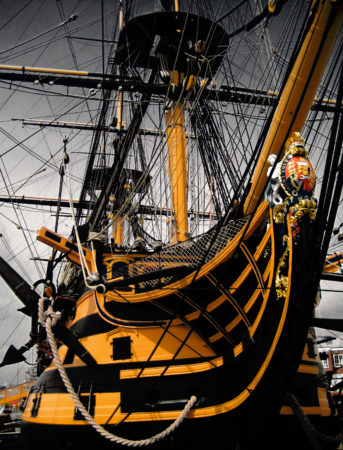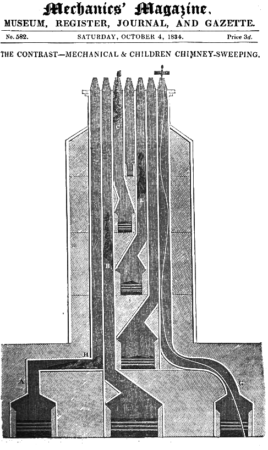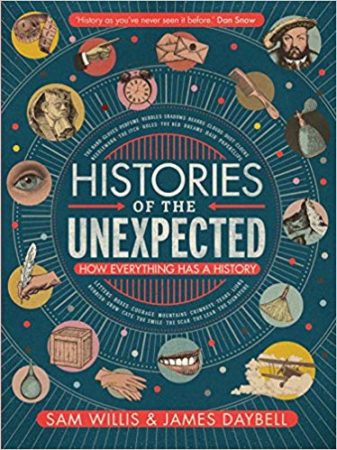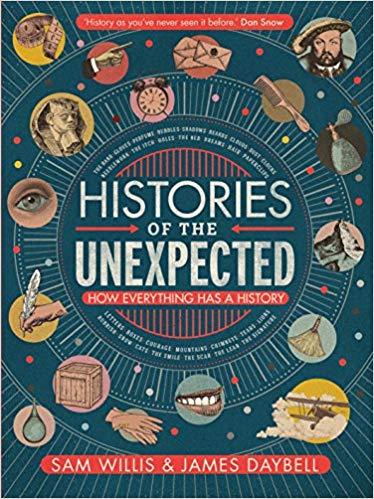Histories of the Unexpected is a chart-topping podcast presented by historian, writer and TV presenter Dr Sam Willis and Professor James Daybell of the University of Plymouth. The podcast demonstrates how everything has a history, even the most obscure of subjects, and how those subjects link together in unexpected ways.
As of March 2019, Histories of the Unexpected has broadcast 95 episodes and has been turned into a book of the same name. Willis and Daybell have also been extensively touring with a live show and they will next appear at the Sheldonian Theatre in Oxford as part of the FT Weekend Oxford Literary Festival in association with All About History.
Speaking to History Answers ahead of their appearance in Oxford on Sunday 31 March 2019, Willis discusses how he and Daybell developed the idea for the podcast, his most “unexpected” historical facts and why people are so fascinated by the past.

How did you come up with the original idea for Histories of the Unexpected?
I was leading a tour around Nelson’s famous flagship HMS Victory, which is in Portsmouth. It’s a huge, wooden, sailing warship and I was explaining why it had three masts and 100 guns etc. We then got to the window at the back of the ship and someone piped up and asked me why it had one.
I couldn’t give him the answer. The sides of the ship are three feet thick, made out of oak and are essentially armoured but someone effectively chose to put a conservatory on the back of a tank. I realised that the only way you could begin to explain that was by writing the history of windows on sailing warships or, more particularly, the history of “looking” on sailing warships. The view from the window was considered so fundamentally important that it was believed to be more important than the safety of the people who were actually onboard the ship.
That made me think, “Hang on a minute. There’s all sorts of weird stuff going on here.” I brought that up with my colleague James Daybell and he said, “I know exactly what you mean, because oranges are all about the Gunpowder Plot!” So that’s how it all came about. Somebody had simply asked me a question that I didn’t know the answer to and I wanted to find it out. Ever since then we’ve been challenging ourselves to write the history of things that we didn’t know even had a history.
It’s been massively rewarding. We’ve almost got 100 podcasts now, 30-40 live shows and we aim to get the podcasts out every two weeks or so.

What is it like to collaborate with Professor James Daybell?
It’s great because we’re very different historians. One of the things that we’ve discovered is that there is no single version of what a historian is and that we’re both very keen on opening history up to everyone.
I’m trained in history, archaeology and grounded in the maritime world. That’s where my expertise was when I did my PhD and since then I’ve moved on to all sorts of things. James is a Tudor historian who writes about gender and family, which are different kinds of things to me. That means that when we both apply ourselves to subjects that neither of us know anything about we think about them in a unique way.
It’s really interesting because you can say to James, “What does the history of windows mean for you?” and he’ll say, “It’s obviously about people looking out of windows and spying on other people.” This is because he’s come across documents that have proved this whereas, for me, windows are all about looking out of sailing warships.
It’s a different way of viewing the discipline and I think it is proof that historians work better with other people and not in isolation.

How do you decide the themes for each podcast episode?
Sometimes it’s something that we’re working on. For example, I was doing a bit of work on rope making in the 18th Century and discovered that the people who made the ropes had to walk backwards all day. They spent their lives walking thousands of miles backwards and I thought, “Oh my God, is there is a history of walking backwards?” James said, “Of course there is. When you go to see the Queen you have to walk backwards in front of her and it’s an established thing.” You suddenly realise that you can actually write a history of people walking backwards even though it sounds ridiculous.
I have a list of podcast ideas that we’re going to do and topics include: ‘Boredom’, ‘Breath’, ‘Glass’, ‘Mistakes’, ‘Logs’, ‘Wells’, the word ‘No’ etc. Those are just things that are jotted down but we’ll sit down and work out together what we’re going to do. Most people think that historians know the answers to questions but we do things the opposite way round. We’ll choose a subject that we deliberately don’t know the answer to.
Some things will work and others won’t. For example, I’d probably find ‘Spoons’ quite boring but ‘Breath’ would be amazing. ‘Boredom’ is also a fantastic one so it’s more about being able to identify a topic that has potential.
What are the “unexpected” historical facts that you’ve been most surprised by?
It’s almost like a bottomless pit. Chimneys was an interesting topic because we discovered that they are historical archives in their own right. The amount of stuff that people have found up chimneys is unbelievable; whether it’s children’s letters to Father Christmas that they think have disappeared or people deliberately putting things up chimneys to keep them safe. Some of these things have been found generations later and that’s absolutely fascinating. Instead of looking at a chimney as somewhere where smoke escapes from, you’ve got to think of it as somewhere where people put stuff.
Needlework was also very interesting and that was about giving female voices power. Women in illiterate, poorly educated or male-dominated societies used needlework in a subversive way to get ideas across. It was really interesting how that worked and beds were also fascinating. Rather than just being somewhere to sleep, beds are a weird portal into and out of the world. It’s where women give birth and where people die. If you think of a bed as a location for history you can open up an extraordinary world.

What have audience reactions been to the live shows?
It’s been so rewarding. We worked with an award-winning playwright who put our podcast and book into a live show format. It uses props and audiovisuals in a very engaged and clever way. What we wanted to do was the opposite of what most historians do, which is to stand up and give a lecture. It’s very interactive, engaging and more theatrical: it’s like a “performance lecture”.
What I’ve found remarkable is that there’s a huge buzz and engagement because we’re not just entertaining people. We’re actually getting them to think about the past in a different way and it works. It’s the best thing I’ve ever done as a professional historian.
What can readers expected from the Histories of the Unexpected book and it’s following series?
Histories of the Unexpected is the main book and has about 30 different chapters. That’s a big book and we’ve since written four smaller books. We’ve taken the same idea and applied it to the Tudors, World War Two, the Romans and the Vikings.
It’s been quite entertaining. For example, with Histories of the Unexpected: The Tudors, you haven’t got chapters on Henry VIII or Anne Boleyn. Instead, there are chapters on ‘Monsters’, ‘The Chair’, ‘Bones’, ‘Eyes’, ‘Shrinking’, ‘Accidents’, ‘Letter Writing’ etc. We’ve applied the same principle with the Vikings. The chapters for that aren’t on invasions or ships burials but ‘Hair’, ‘Birds’, ‘Doors’, ‘Saunas’ and ‘Colour’.

What is it about history that people find so fascinating?
It’s a really interesting question and I don’t think it’s actually been given enough thought. I think people find it fascinating because they don’t know “why” they find certain subjects fascinating. For example, I’m interested in the 18th Century navy, the sea and ships. I have no idea why I’m interested in that and don’t know why I didn’t choose, for example, Viking cooking in the 9th Century in Europe for my PhD. Similarly, I don’t know why I didn’t choose the development of pottery in China in the 14th Century. The amount of subjects you could do is literally endless.
People immerse themselves in history and they suddenly find stuff that they’re interested in. They don’t know why but it strikes a personal chord that they find rewarding. It’s like listening to a song that you suddenly like. You don’t know why you like it but you love it nonetheless. Some things speak to your personality and soul and it’s exactly the same with history. You suddenly come across something and think, “Actually, I really am massively interested in Henry VIII’s armour”.
That’s what I love about it. Once you expose people to the sheer extent of history, I think you can get more people involved in it by getting them to find the subject they love. Of course, you have people who are interested in history anyway but I’m interested in those who aren’t yet because I think everyone at heart is a historian.
Dr Sam Willis and Professor James Daybell will be presenting Histories of the Unexpected LIVE at the Sheldonian Theatre in Oxford on Sunday 31 March 2019 at 2.00pm. To purchase a ticket, follow the link here. To listen to their podcasts or purchase their book visit Histories of the Unexpected.
This event is part of the 23rd FT Weekend Oxford Literary Festival in association with All About History. Running between 30 March-7 April 2019, the festival is hosting over 160 events in the heart of the “City of Dreaming Spires”.
If you liked this article and want to read more about interesting historical facts and stories why not purchase a subscription to All About History?
